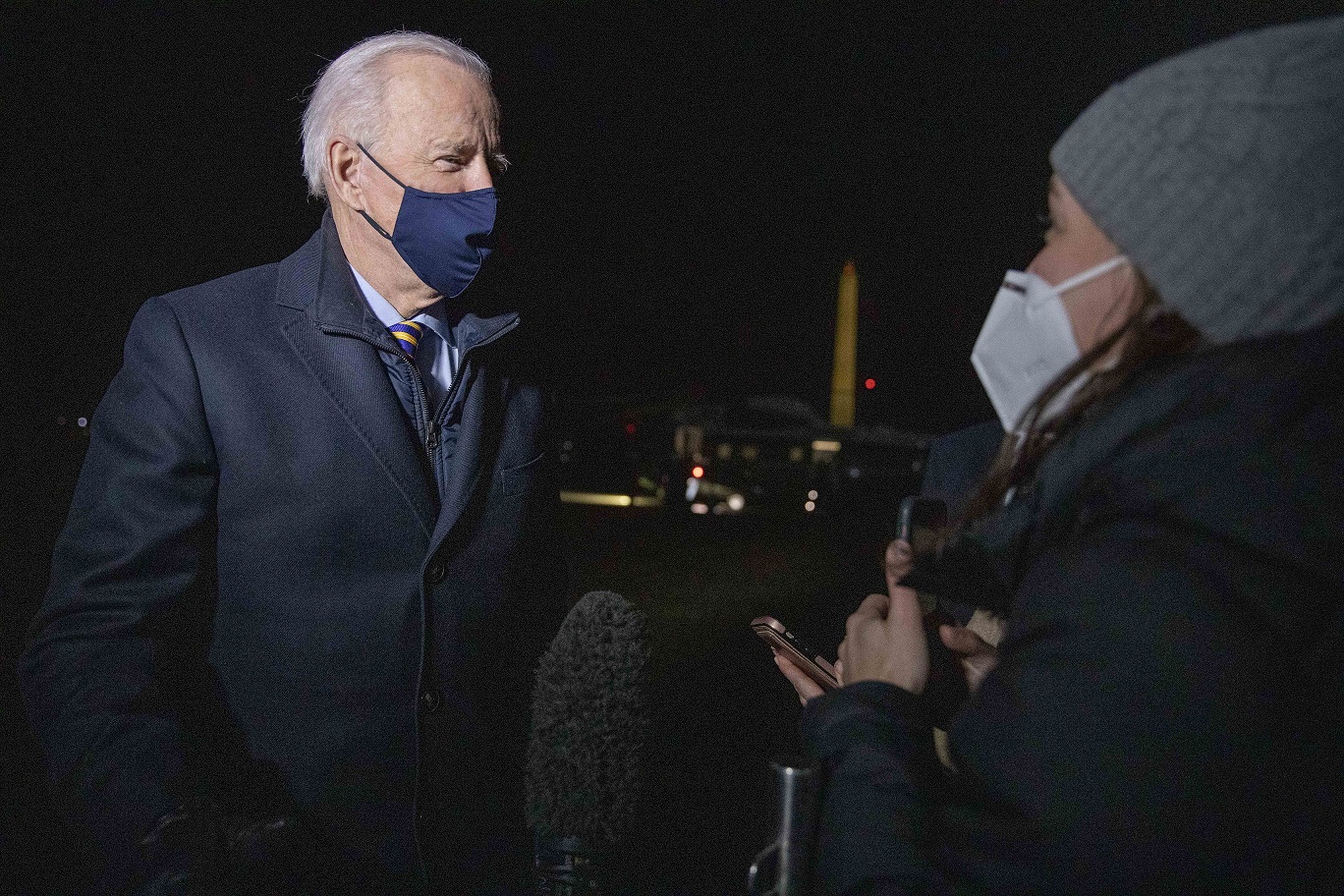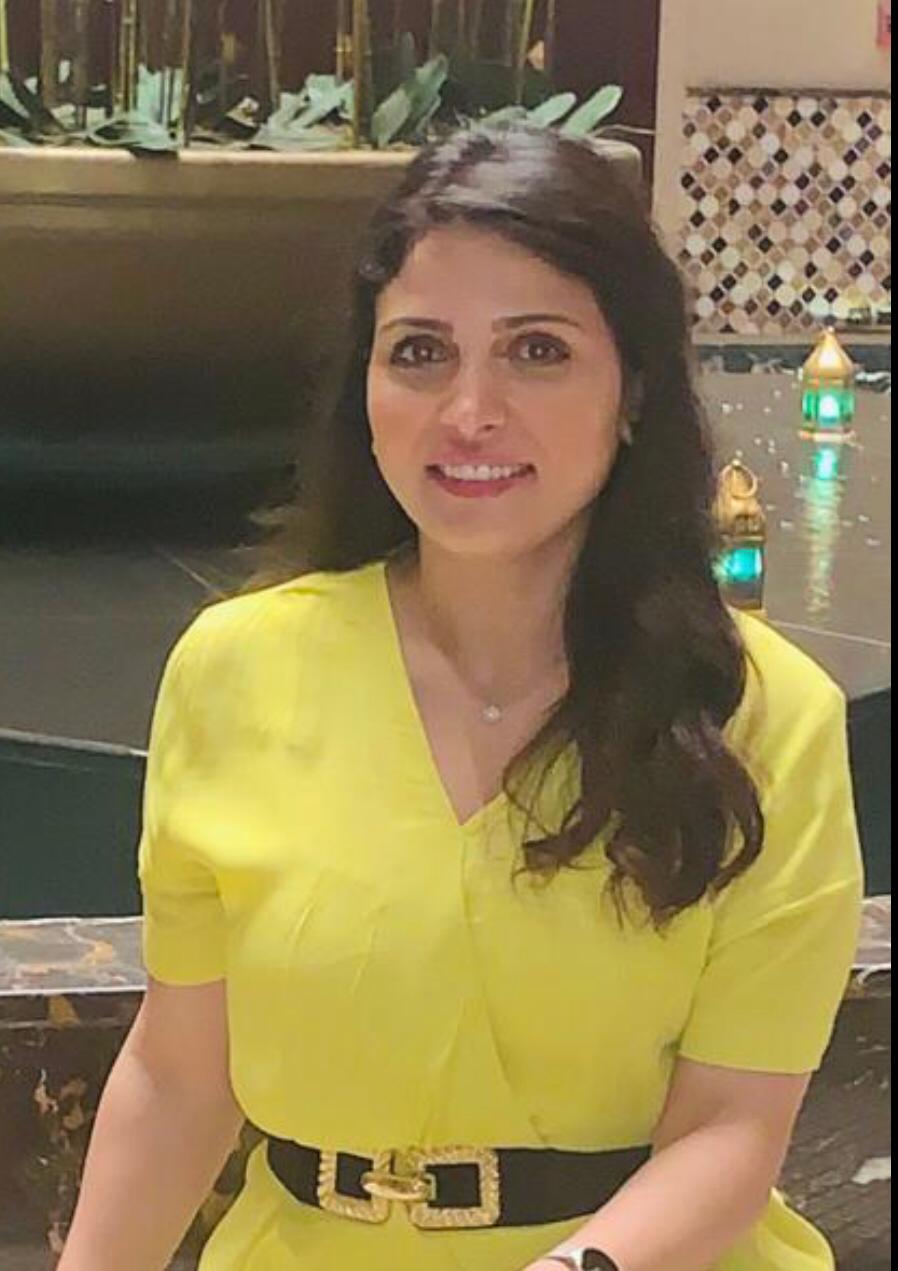نجح الرئيسُ الأمريكيُّ "جو بايدن" في أنْ ينشُرَ الابتسامةَ على مُحَيّا الصّحفيّين الحاضرين في المؤتمر الصحفيّ بالبيت الأبيض بواشنطن، وهو يُجيبُ المراسلَ الصحفيَّ لقناة "فوكس نيوز" بيتر دووسي -عندما سأله عن فحوى مكالمته الهاتفية مع الرئيس الروسي فلاديمير بوتين- بالقول: "تحدثنا عنك، يرسل لك الرئيس تمنياته".
وهي خطوةٌ ربّما تأتي لإذابة الجليد المتراكم طيلةَ السّنوات الأربع الماضية بين السلطة التنفيذية والسلطة الرابعة، بعدما وصلت الأمورُ إلى مستوياتٍ سيّئةٍ في عهد الرئيس السابق دونالد ترامب.
الابنُ البارُّ للمنظومة السياسية الأمريكية التقليدية التي قضى بين مؤسساتها نصفَ قرن من عمره، والمعروفُ بقدرته البالغة على استمالة الناس إليه، سارَعَ إلى نزع فتيل الاحتقان، وطمْأَنَة جُلِّ وسائل الإعلام.
ساعاتٌ قليلةٌ بعد تنصيبِه، تعهَّدت المتحدثةُ باسم البيت الأبيض جين ساكي بمشاركة "معلومات دقيقة" مع الصحفيين، وبتأسيس علاقات أفضل مع المؤسسات الصحفية، وهي الشخصية المخضرمة التي تحظى باحترام كبير لدى الصحفيين؛ لتجربتها المميزة في إدارة الرئيس الأسبق باراك أوباما، واشتغالها في وزارة الخارجية أيضا في عهد جون كيري.
ترامب.. ضد التيار
في الصورة المعاكسة، نجد ترامب الذي دشَّنَ يومَ رئاسته الأول يوم 21 يناير 2017، بهجوم لاذع وحادٍّ على وسائل الإعلام الأمريكية التقليدية خصوصا، على خلفية خلاف حول تقديرات أعداد مَن حَضَرَ وشاهَدَ حفلَ تنصيبه رئيسا للولايات المتحدة.
حينذاك، زعم السكرتيرُ الصحفي للبيت الأبيض شون سبايسر في أول تصريح له في مؤتمر صحفي "أنّ تنصيب ترامب حضَرَه أكبرُ جمهور على الإطلاق.. نقطة على السطر". وكانت صورٌ جوية أظهرت أنّ حفل تنصيب الرئيس الأسبق باراك أوباما جَذَبَ جمهورا أكبر بكثير، كما أظهرت تصنيفاتُ شركة نيلسن الأمريكية لأبحاث الإعلام وقياسات المشاهدة أنّ حفل تنصيب أوباما استقطب عددا أكبر من المشاهدين عبر التلفزيون (38 مليونا) مقارنة بحفل تنصيب خلفه ترامب (30.6 مليونا).
وتوقَّع مراقبون أنّ خلافاتِ ترامب مع الصحفيين ستنتهي بمجرد وصوله إلى البيت الأبيض، لكنْ يبدو أنّها كانت فقط بدايةَ جولةٍ أكثر تصعيدا مع الإعلام، حيث لم يتوانَ في أيِّ مناسبة عن نعْتِ وسائل الإعلام بشتّى الصفات مثل: "عدو للشعب الأمريكي" وأنها تنشر "أخبارا كاذبة. كما شكّك في نزاهة الإعلام الأمريكي وحياديّته، موجِّهًا أنصارَه لمشاهدة محطة فوكس نيوز الإخبارية فقط.
صحيحٌ أنّ ترامب هزَّ علاقتَه بالجميع حتى مع المقرّبين منه خلال فترة رئاسته الوحيدة، التي شهدت استقالاتٍ رفيعةَ المستوى؛ كاستقالة "شون سبايسر" والمستشار "ستيف بانون" ومدير مكتب التحقيقات الفيدرالي (أف بي آي) "جيمس كومي".
كما دخل في حربٍ أكثرَ شراسةً مع عدد من القنوات التلفزيونية منها "سي أن أن" و"سي بي إس" و"آي بي سي" و"إن بي سي"، بالإضافة إلى يوميتي "نيويورك تايمز" و"واشنطن بوست"، بل وصلت الأمورُ إلى حدِّ سحب تصاريح مراسلين بالبيت الأبيض؛ كما حدث مع الصحفي "جيم أكوستا" من شبكة "سي إن إن" الذي ربح المعركة ضد ترامب.
إلا أن الرئيس الخامس والأربعين في تاريخ الولايات المتحدة، نجح في منح الثقة للمواطن الأمريكي من خلال عدد من الإنجازات، تمثلت في تحقيق أعلى معدل لنمو الاقتصاد الأمريكي (فوق 3%) لفترة وجيزة، كما حققت البورصة الأمريكية أرباحا كبيرة خاصة مؤشر "داو جونز " الصناعي، وانخفض معدل البطالة في أمريكا إلى 4.7% وهو ما وعد به ترامب أثناء حملته الانتخابية الأولى.
ديمقراطية أمريكا على المحكّ!
في السادس من يناير 2021 دفع ترامبُ أنصارَه إلى اقتحام مبنى الكابيتول، في الوقت الذي كان فيه الكونغرس مجتمِعا من أجل اعتماد فوز بايدن في الانتخابات بشكل رسمي. وقد عبث المقتحمون بمحتويات المبنى الذي يرمز إلى تاريخِ أعرقِ الديمقراطيات في العالم وأكبرها، في صورةٍ هزّت سُمْعَةَ أمريكا، ربما أكثر من هجمات 11 سبتمبر.
هنا دخلت العلاقة بين ترامب والإعلام مُنعطَفا آخر مختلفا، ففي ذلك اليوم منَحَ ترامبُ المؤسساتِ الإعلاميةَ فرصةً من ذهب، وهو في آخر أيامه الرئاسية، كي تُجْهِزَ عليه وعلى مستقبله السياسي ربّما، بل حتّى الصحافة المحافِظة وجدَتْ حَرَجًا وصعوبةً حينَها في الدفاع عنه، فاختارَت اللّاموقف.
وإنْ أجهضَ الجمهوريون بمجلس الشيوخ الأمريكي مساعيَ خصومهم الديمقراطيين لإدانة "ترامب" بتهمة تحريض أنصاره على اقتحام الكونغرس، إلا أن زعيم الجمهوريين بالمجلس "ميتش ماكونيل"، وجَّهَ انتقاداتٍ شديدةَ اللهجة لترامب؛ معتبرًا إيّاه هو "المسؤول" عن الهجوم عمليًّا وأخلاقيًّا.
وصحيح أنّه بدأت الآن مرحلةُ ما بعد ترامب، وإنْ حملَتْ رؤيةً وتصوُّرًا جديدين، إلّا أنّها مُثقَلَةٌ بالانقساماتِ الدّاخليّةِ العميقةِ التي تشهدُها أمريكا حاليًّا.
الرئيس الأسبق "باراك أوباما" الذي هنأ رفيق حزبه بالفوز، أكد أن التحديات التي تواجه "بايدن" لم يواجهها أي رئيس جديد على الإطلاق، وأن مغادرة الرئيس "ترامب" للبيت الأبيض لن تمحو أخطاء المرحلة السابقة ولن تصوّبها.
"أوباما" الذي عاش فتراتِ المداعبة والدلال من طرف الإعلام الأمريكي، وصلَت إلى درجةِ الصمت عن أخطائه، والتي اعترف بها شخصيًّا من خلال كتابه "أرض الميعاد". إذ أقرَّ بالنقد الذي وُجِّه إليه بشأن طريقة معالجته للأزمة المالية العالمية، والتي أثّرت على حياة المواطنين العاديين، وأيضا قراره تعزيز القوات الأمريكية في أفغانستان سنة 2009، والغارات الجوية على ليبيا 2011.
إذا تأمَّلْنا الوقائعَ جيّدًا؛ فسنرى أنّ الإعلام الأمريكي سقط جَهْلًا أو عَمْدًا في فخّ الانحياز لأوباما وضَغَطَ بقوّة على ترامب؛ من خلال البحث عن أخطائه بالمجهر. ليُطرَحَ السؤالُ الجوهريُّ الآن: هل سيتعاملُ الإعلامُ مع "جو بايدن" الرئيس السادس والأربعين على أساس أنّ ولايته هي الولاية الثالثة لأوباما؟
ثقةُ الأمريكيين في وسائل الإعلام؟
على ما يبدو، فإنّ وسائل الإعلام الأمريكية فطنت نسبيًّا، لضرورة التموقع خارج دائرة الحسابات السياسية، وأن تلتزم الحياد والشفافية؛ كي لا تفقد مصداقيتها أكثر أمام متابعيها.
فبمجرد أن غرّدَت الصحفيةُ الأمريكية لورين وولف من صحيفة نيويورك تايمز على تويتر، بأنها شعرت بـ "قشعريرة" عندما شاهدَت طائرةَ "بايدن" تهبط في قاعدة "أندروز"، حتى وجَّهَ عددٌ من مستخدمي وسائل التواصل الاجتماعي ومِنصّاتٍ إخبارية يمينية اتهاماتٍ للصحيفة بالتحيُّز الإعلامي.
من جانبها، ردت الصحيفة على الانتقادات بطرد الصحفية من عملها، تجنُّبًا لأيّ لبسٍ في موقفها، وإن كانت تعرَّضَتْ مرّةً أُخرى لانتقادات من طرف عدد من الصحفيين الذين اعتبروا أن هذه الخطوة خاطئة، وكان بإمكان الصحيفة أن تجد حلًّا وسطا لهذه الواقعة.
وتكشف الإحصائيات التي وضعتها مؤسسة غالوب وهي شركة تحليلات واستشارات أمريكية، أن 18% فقط من الأمريكيين لديهم "قدْرٌ كبير" أو "كثير جدًا" من الثقة في الأخبار التلفزيونية.
أما بالنسبة للصحف، فالرقم لا يتجاوز 24%، وأن الجمهوريين والديمقراطيين يضعون ثقتهم في بيئتين إعلاميتين متناقضتين تقريبًا.
وحسَب البيانات، فإنّ عدم ثقة الأمريكيين في وسائل الإعلام سبقت دخول ترامب للبيت الأبيض، لكنّ الرئيس الجمهوري قلَّصَ من رصيد ثقة الأمريكيين في صاحبة الجلالة حين امتهن الترويج للأخبار الزائفة خلال ولايته الرئاسية، والتي وصلت إلى 30.573 حسب صحيفة واشنطن بوست.
وأظهر التقرير الأخير لمركز بيو للدراسات 2020، أنه -رغم انتشار المعلومات المضلّلة على منصات وسائل التواصل الاجتماعي؛ في قضايا مثل الانتخابات وجائحة كورونا- إلا أن قرابة 53% من الأمريكيين يعتمدون على هذه المنصات للحصول على الأخبار، وخاصة فيسبوك.
في حين طالَبَ الرئيس الأمريكي جو بايدن، حسب موقع "بيزنس إنسايدر"، بإلغاء القسم 230 وهو قانونٌ اتحادي ينصّ على أنّ شركات الإنترنت ليست مسؤولة عن المحتوى المنشور على منصاتها، مبديًا رغبتَه الشديدة في محاسبة موقع فيسبوك على "الأخبار الزائفة" التي ينشرها.
بايدن الذي لا يُدوِّنُ كثيرا في وسائل التواصل الاجتماعي عكْس ترامب"، يسابقُ الزمنَ الآن ليبنيَ سياسةً مختلفةً تحسِّنُ علاقةَ البيت الأبيض بغرف تحرير المؤسسات الإعلامية، من خلال اتخاذ عدد من الخطوات الجِدّيّة، كتجديد الاشتراك لصحيفتي "نيويورك تايمز" و"واشنطن بوست"، وجدولة ثلاث إجازات أسبوعيًّا للصحفيين كحدٍّ أدنى، وأُدخلت لغة الإشارة على المؤتمرات الصحفية للوصول إلى أكبر عدد ممكن من الأمريكيين.
خطواتٌ يرى مراقبون أنّها تشكّل سيفا ذا حدين، إذ يسود تخوُّفٌ من أن تعود الصِّحافة إلى أسوأ أساليب التغطية في أخبار الرؤساء والمبالغة في الاحترام، مطالبين بإبقاء بايدن تحت الضغط وعدم التراخي والتراجع، على أمل أن يُصْلِحَ الأمورَ.
بمجرد انتهاء "الأيّام المئة" المعتادة، والتي يمرّ فيها الرؤساءُ الجدد بفترة ما يُعرَف بشهر العسل مع الصحافة، سيتضح توجُّهُ المؤسسات الإعلامية التقليدية الأمريكية التي تعيش الآن تحت ضغطِ تضاؤلِ عائداتِ الإعلاناتِ وصعودِ المِنصّاتِ الرّقْمِيّة والاجتماعية التي تستحوذ على أكبر عدد من المتابعين الأمريكيين.




















![Palestinian journalists attempt to connect to the internet using their phones in Rafah on the southern Gaza Strip. [Said Khatib/AFP]](/sites/default/files/ajr/2025/34962UB-highres-1705225575%20Large.jpeg)




















